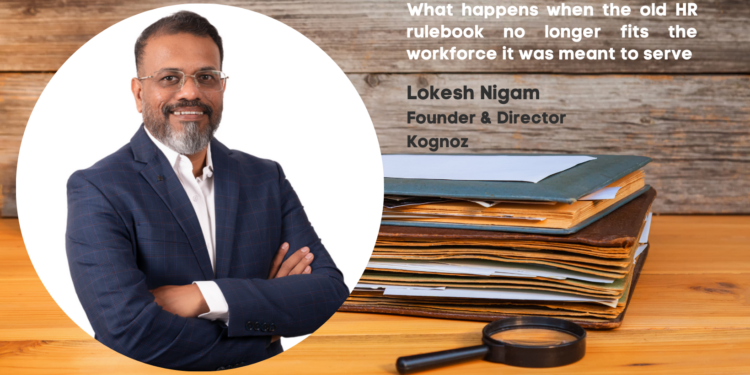In Indian workplaces, something big is happening, and the shift is more profound than we think.
A quiet revolution is reshaping how we think about work, talent, and the employee experience. It’s not loud. It’s not disruptive. But it’s deep and it’s defining the future of organizations in India. Powered by AI, shaped by the expectations of a new generation, and accelerated by the need for agility, HR is moving from a process-driven function to a peoplecentered force for transformation.
Letting Go of Legacy HR
For decades, HR in India was designed for stability. It revolved around policies, compliance, and control- tracking attendance, conducting annual appraisals, enforcing rigid procedures. This model worked when the world of work was predictable. But today’s reality is anything, but talent churn is high. Skills evolve every quarter. And employees are no longer satisfied with being managed, they want to be inspired, empowered, and enabled.
HR can no longer be the gatekeeper. Employees aren’t looking for policy enforcers, they’re looking for partners in growth. They’re seeking autonomy, belonging, and meaning in what they do. This is where the old playbooks fall short and why a new HR mindset is emerging.
What’s Taking Root Instead
We’re witnessing the emergence of a more human, more adaptive, and more intelligent HR, one that blends behavioural science, AI, and design thinking.
According to LinkedIn, 78% of recruiters in India now take a skills-first approach to hiring and development. This marks a fundamental shift from hiring for pedigree to hiring for potential and from enforcing rules to designing for resilience.
HR is evolving from policy enforcers to workforce designers, architects of talent ecosystems that are responsive, dynamic, and personalized.
AI plays a critical role here not as a replacement for human capability, but as an amplifier of it. From skills mapping to learning recommendations, from sentiment analysis to talent forecasting, AI is liberating HR teams from transactional work. This frees up bandwidth to focus on what really matters: human connection, coaching, empathy, and innovation.
Compensation, Trust, and Transparency Are Being Rewritten
Another silent transformation is happening in how organizations approach compensation and trust. A recent EY India study (Feb 2025) revealed that 60% of employers in India plan to use AI to drive pay benchmarking, rewards, and compensation decisions by 2028. This is more than a technology trend, it’s a trust imperative.
Younger employees today expect more than fair pay. They expect transparency, equity, and recognition beyond job titles. They want to be seen for who they are, and what they’re capable of becoming.
Compensation is no longer just a number. It’s a signal of value, respect, and intent. And when organizations listen to their people, support their aspirations, and make data-driven yet humane decisions, they build cultures of trust that fuel performance.
Why This Moment Matters
This transformation isn’t about technology replacing people. It’s about using technology to elevate people.
As India’s workforce becomes increasingly diverse and multi-generational, the organizations that thrive will be those that skilfully blend AI with human judgment. Let AI do the heavy lifting, analysing data, tracking performance, benchmarking compensation. But let humans lead when it comes to solving problems, building culture, and inspiring teams.
The most successful workplaces of the future will be those that use AI to unlock the best in human beings, not suppress it. Those that replace control with creativity, compliance with curiosity, and policies with purpose.
The Redefinition of Trust and Leadership
At the heart of this transformative shift lies the concept of trust. It is about placing trust in individuals to take ownership of their growth, trusting leaders to manage with empathy, and empowering systems to facilitate progress rather than impose limitations. When employees understand their roles and feel heard, valued, and supported, they tend to act with greater responsibility. Likewise, when leaders create environments that promote transparency, autonomy, and psychological safety, they unlock unparalleled levels of engagement and innovation.
Closing From Rulebook to Compass
While this HR revolution may unfold quietly, it promises to shape the very DNA of India Inc. over the next decade. We are transitioning from a model where HR simply governs to one where HR serves as a guiding force. Moving from rulebooks to compasses, this shift holds the potential to foster organizations that employees not only work for but truly believe in.
Read Also : When HR “Produces Nothing”: A Response to Jennifer Sey’s Anti-HR Vision
The Fine Balance: Navigating Work, Life, and Mental Wellbeing
Mind the Leadership Gap – From Learning to Real-World Impact
How the Adecco Group is empowering its employees for the future of work













